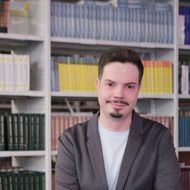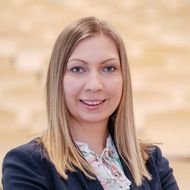HSE University-St Petersburg Students Participate in International Winter School in India
In January, UPES University (India) held the International Student Winter School 'Business and Governance in India'. HSE University-St Petersburg was represented by students of the bachelor's programmes 'Political Science and World Politics' and 'International Bachelor's in Business and Economics', as well as the Master's programme 'International Business in the Asia-Pacific Region'. Read on to find out what the students learned from the Winter School what lasting impressions they have.
The International Winter School was organised by UPES University specifically for HSE students. It covered the economic development, politics, and culture of India. Over ten days, students of HSE campuses in St Petersburg, Moscow, and Nizhny Novgorod attended lectures and seminars delivered by UPES professors and took part in a cultural programme.
The university also invited special guests to deliver lectures: Dr Anil Prakash Joshi, a renowned Indian environmental activist and founder of the Himalayan organisation of environmental research and nature preservation; and Dr Subhashis Gangopadhyay, an outstanding economist. HSE students also visited a non-profit organisation which engages in ecology and support of villages, a village, and a small enterprise where they got to know the ins and outs of business and production in India at the ground level.
During the trip to India, the HSE students also learnt about the cultural life of the country. Together with the professors, they visited the picturesque cities of Rishikesh and Mussoorie. The students participated in exciting workshops in yoga and traditional Indian dances. At the end of the Winter School, they developed a final project and received feedback from UPES mentors.

Yury Kabanov
Senior Lecturer at the Department of Political Science and International Affairs
The Winter School truly helped us to immerse ourselves in Indian culture. In our bachelor's programme, we discuss political processes in different regions. This Winter School was definitely a unique opportunity for students to learn more about the social and political development of the country, its political culture, and international relations. What's more, lots of lectures and workshops highlighted the close connection between politics and economics. In the programme, we also pay a lot of attention to how local stakeholders and communities form state politics. For me, an especially valuable thing was being able to speak with representatives of non-profit organisations. In addition, we had a chance to communicate with UPES representatives and negotiate further cooperation in science and educational activities. I am sure that the Winter School is an important step towards more large-scale projects in this sphere.

Liudmila Veselova
Associate Professor at the Department of Management, Academic Supervisor of the Master's programme 'Business and Politics in Modern Asia' and 'International Business in the Asia-Pacific Region'
At the moment, scientific and cultural ties between India and Russia are rapidly developing. India is becoming a more important and reliable economic partner of our country. This is why we decided to organise the Winter School, which covered two very important aspects: business and politics in India. This school helped students of the Master's programme 'International Business in the Asia-Pacific Region' to discover the country and learn about the state of Indian economics and business first-hand.
There were dedicated lectures and workshops on business communication and culture, which is extremely important for doing business with Eastern partners. A great advantage of this Winter School was its applied focus. Colleagues from UPES University organised several excursions to manufactories, a mountain village, and a non-profit organisation. It was really interesting to see how the supply chain was structured and how small and medium-sized enterprises work in India. I would like to underscore that my Indian colleagues did great work, and the school was impeccably organised. The students managed to gain not only academic knowledge, but also applied knowledge by actively communicating with their Indian peers. The Winter School resulted in projects on different topics where students worked together with their UPES mentors, allowing them to deeper immerse themselves in the context.
In my opinion, holding such schools is extremely important to understand other countries and cultures. Together with our students, we have learnt first-hand that the information we see in the mass media and on social networks is radically different from reality. Especially if we are talking about such dynamically developing countries as India!
Victoria Baturina
Student of the Bachelor's programme 'Political Science and World Politics'
The immersion programme in India has left a vivid impression. I especially liked visiting Rishikesh and getting to know the local culture. I am glad that we had an opportunity to communicate with UPES professors who are real experts in their fields. Most of all, I liked the openness of the professors and students—everyone was happy to talk and answer any questions.
Anton Fedorov
Student of the Master's programme 'International Business in the Asia-Pacific Region'
My most vivid memory of the Winter School is of the warm communication with people, which reminded me of the deeply rooted ties between Russia and India. This similarity of views and values created an atmosphere of mutual respect and learning, which made my time in India comfortable and enlightening. I would like to say a huge thanks to the organiser of the programme for this experience.
Ksenia Pugina
Student of the Master's programme 'International Business in the Asia-Pacific Region'
Since childhood, I have dreamed about visiting and exploring India. The Winter School was an opportunity for active cultural exchange and knowledge sharing. Here, I found new ideas, new real friends, and a new lifestyle. I plan to keep in touch with UPES professors and students. The programme during these ten days was very intense and unique. Almost every day, I felt like the happiest person in the world. Thank you for this opportunity!
Anna Razdajbedina
Student of the Bachelor's programme 'Political Science and World Politics'
The trip to India was an unusual experience of studying a new culture. It was truly interesting to see a completely different world. I liked the lectures with UPES professors a lot. It was nice to tap into Indian culture, try local cuisine, and get to know local traditions. I was also impressed by the people at the university: all of them were open to communication and ready to answer questions. We managed to talk not only to the professors who delivered lectures for us, but also to those who did not teach us personally. I had a conversation with a political science professor; it was interesting to discuss political systems in India and Russia with her.
The students were also open and friendly, and we even played basketball with the university team. In general, the trip to India has left very positive impressions.
Georgy Kulikov
Student of the programme 'International Bachelor's in Business and Economics' in Nizhny Novgorod
Participation in the Winter School provided me with an absolutely unique experience which allowed me to expand my social circle, dive into an English-speaking environment, and get to know amazing Indian culture. I also had a chance to immerse myself in the local culture and language. I especially liked the programme on Indian economics; it helped me to understand market trends and the country's tax system better.
Yana Dobriyan
Student of the programme 'International Bachelor's in Business and Economics' in Nizhny Novgorod
The offer to go to India was a complete surprise for me. Most of all, I wanted to get to know Indian culture and have a look at life in India from the inside.
The trip gave me unforgettable impressions: the atmosphere, nature, people, food—everything was very picturesque and authentic. I was really impressed by the number of national holidays in India we were able to attend. They taught us local dances and drew bindis on our foreheads.
Another useful thing for me was the lectures by UPES professors. They shared their opinion on the development and future of their country, often expatiating philosophically.

